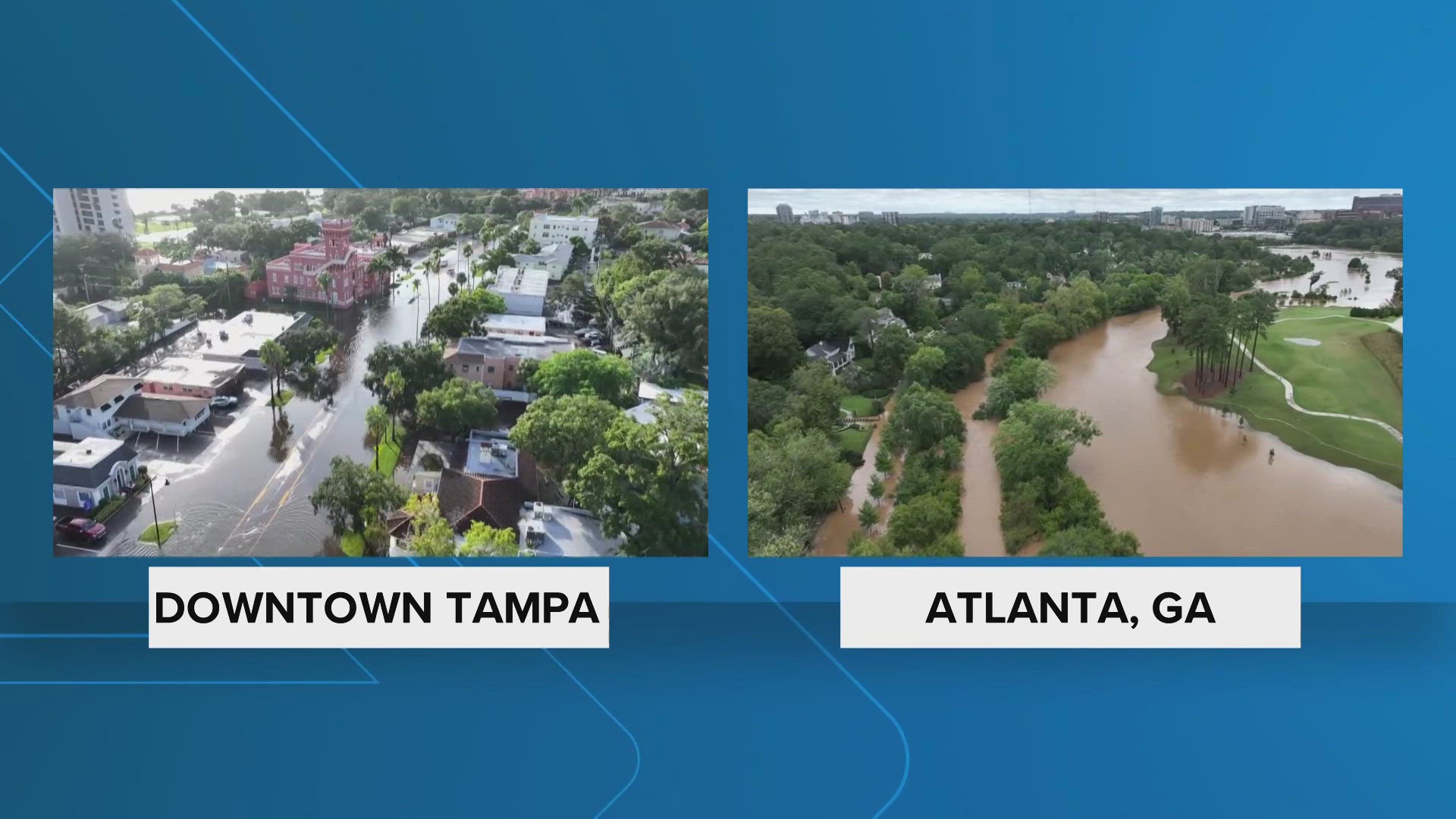WASHINGTON — The impact of Hurricane Helene is yet another test of the nation's supply chain resiliency, as episodes of severe weather increase in frequency and intensity, according to Dr. Julie Swann, a professor at North Carolina State University and the president of the Institute for Operations Research and the Management Sciences (INFORMS).
“Several of the areas that it can impact have strong connections to our supply chains," Swann said Friday as the storm spread catastrophic flooding into Georgia and the Carolinas. "For example, Atlanta is a very busy airport with lots of cargo going in and out, and of course, the southeast and gulf coasts have many ports. If roads are disrupted, or travel slows down trucks, then it becomes more difficult to get those products to where they need to be."
Swann warned weather-related disruptions could be amplified in the coming weeks because ports are under threat of a nationwide strike by dock workers. The key date right now is Oct. 1, when contacts are set to expire.
In addition to better wages, the Longshoremen’s Union wants a ban on the automation of cranes, gates and container movements that unload and load the freight ships in those 36 different ports.
"That could add further disruptions to the system," Swann said, noting those ports are handling 40% of the products on the nation's retail shelves.
Ports in Florida reopened Friday after the passage of Helene. Port Canaveral, the nation's busiest cruise terminal, also reopened Friday, as cruise lines scrambled to make up delays caused by the storm.

